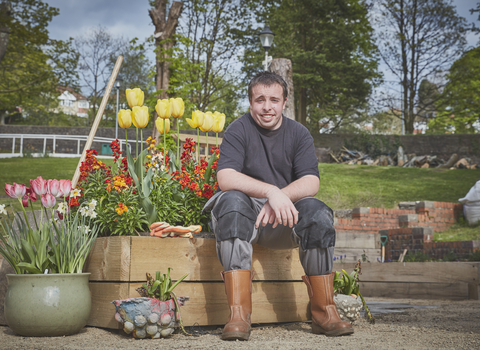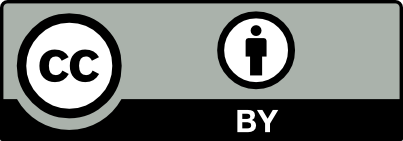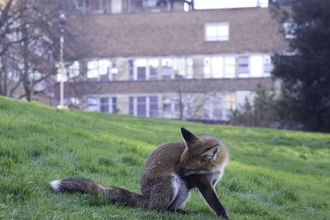All about councils and local authorities
The Wildlife Trusts
Why should I care about councils?
You need to know who your council is and how to contact them, because they have information about parks, verges, community spaces, planning and more.
About Councils and Local Authorities - Nextdoor Nature (https://www.youtube.com/watch?v=pZDv-ri2GOs)
A short animation to help you understand all about councils in the UK.
What do councils and Local Authorities do?
A “Local Authority” can mean any of the different types of council in the UK. There are different systems in England, Scotland, Wales and Northern Ireland. The Crown Dependencies of the Isle of Man and the Channel Islands also have their own way of working.
You need to know who your council is and how to contact them, because they have information about parks, verges, community spaces, planning and more.
England
England has different systems in different places, and these often have different names. You might see “local authority” or “elected local government” to mean “council”.
Put your postcode in this website. It’ll tell you what sort of council you live in. If there’s more than one, it’ll tell you who does what.
All you need to know is who does what, and this website will tell you.
If you have two councils, the big county council will look after schools, social care, libraries, trading standards, big planning decisions and transport. The smaller districts, boroughs or city councils will look after rubbish and recycling, your council tax, housing, and local planning applications.
If you have one council, they’ll deal with everything listed above.
The smaller parish, community and town councils can help with local issues. They look after allotments, bus shelters, community centres, play areas, and small grants for local groups. They help with planning but cannot make decisions about it. They can also issue fines for litter, graffiti, and dog offences.
There’ll be a part of your council called the “local planning authority”. They deal with planning applications for extensions on houses, building new houses, and changes to shops and businesses.
Your council publishes plans which tell everyone what the council want to do. There’ll be a “local plan” which says which areas can have houses or shops or businesses, and which areas can’t be built on. There will be other plans too, like for housing. You can find them on your council’s website.
Extra information:
If you’re in England, the top level of power will be one of these:
- a county, which is split up into districts, boroughs or city councils. There are 24 county councils split into 181 district, borough or city councils.
- a unitary authority, which might be a county but won’t be split up into districts or boroughs. There are 59 unitary councils. Unitary means that the council does everything.
- a metropolitan district or a metropolitan borough. There are 36 metropolitan boroughs.
- or you’ll be in Greater London, which has 32 boroughs plus the City of London. There are around 9,000 parish and town councils in England. There are 10 National Parks. In some places, there are Combined Authorities where two or more councils work together.
Scotland
There are 32 local authorities, also called councils, in Scotland. Each local authority will look after schools, social care, roads, transport, housing and planning, environmental protection, libraries and rubbish collections.
Sometimes, some local authorities work together or with other groups, for example to provide transport across a larger area.
In some areas, the council doesn’t run some services like sports or managing property. Instead, an “Arm’s Length External Organisation” (ALEO) looks after this service. Your council will tell you if this is the case.
Find your local council in Scotland by entering your postcode on this website.
Wales
In Wales, there are 22 “principal areas” or local government areas. These principal areas might be called a county, a county borough, or a city. These are divided into over 730 local community councils or town councils.
Councils in the larger principal areas look after schools, social care, housing, planning, bins, and council tax.
The smaller community or town councils look after village halls, playing fields, open spaces, bus shelters, street lights and footpaths.
Find your local council in Wales by entering your postcode on this website.
Northern Ireland
Northern Ireland is split into 11 “local government districts” or LGDs. They might be called a borough council, city council or district council.
The LGDs look after planning, bins, sports and leisure centres, community services, building control, and local cultural development. However, they don’t control schools, roads or housing. The LGDs write a local development plan to say where houses can be built.
Find your local council in Northern Ireland by entering your postcode on this website.
Isle of Man
The Isle of Man isn’t part of the UK. It’s a “self-governing British Crown Dependency”. It has its own government which runs the island. It also has a parliament called the “Tynwald” which makes laws.
It’s split into 21 local authorities which can be “town authorities”, “district authorities”, “village authorities” or “parish authorities.” They look after bins, parks, housing, verges, libraries and trees.
Find your local council on the Isle of Man by entering your postcode on this map.
Channel Islands
The Channel Islands are split into the “Bailiwick of Guernsey” and the “Bailiwick of Jersey”, and they are not part of the UK. Like the Isle of Man, they are “Crown Dependencies” with their own government.
There is a local Wildlife Trust on Alderney which is part of the Bailiwick of Guernsey. Alderney is one complete parish. It also has its own parliament, the “States of Alderney”, and a president. The States of Alderney look after most of the island except for a few things like defence, foreign affairs and fisheries, which is looked after by the UK. Otherwise, everything else is managed by the States of Alderney. Find out more on their official website.


The Wildlife Trusts
Have you been part of a community nature project?
We'd love to hear from you! Your experiences will be shared right here on the Community Hub and will inspire others to take action in their own neighbourhoods.
Except where noted and excluding images, company and organisation logos, this work is shared under a Creative Commons Attribution 4.0 (CC BY 4.0) Licence.
Please attribute as: “Nextdoor Nature (2022-2024) by The Wildlife Trusts funded by The National Lottery Heritage Fund, licensed under CC BY 40”




